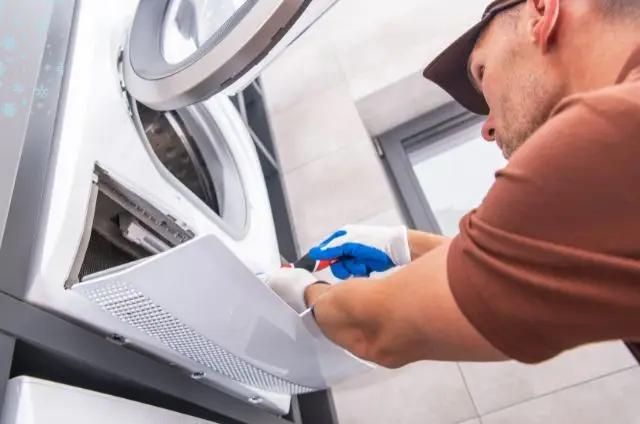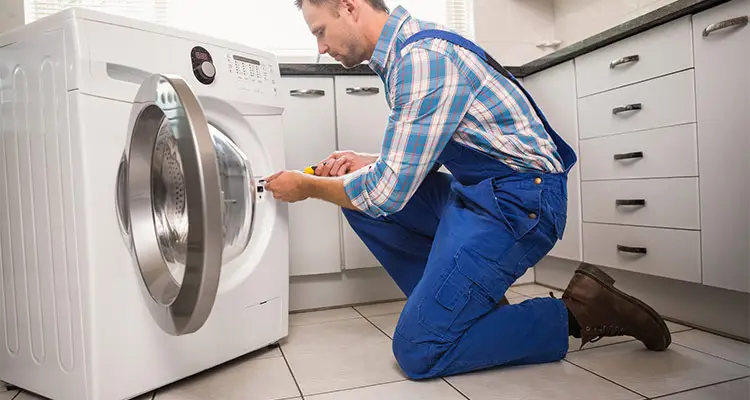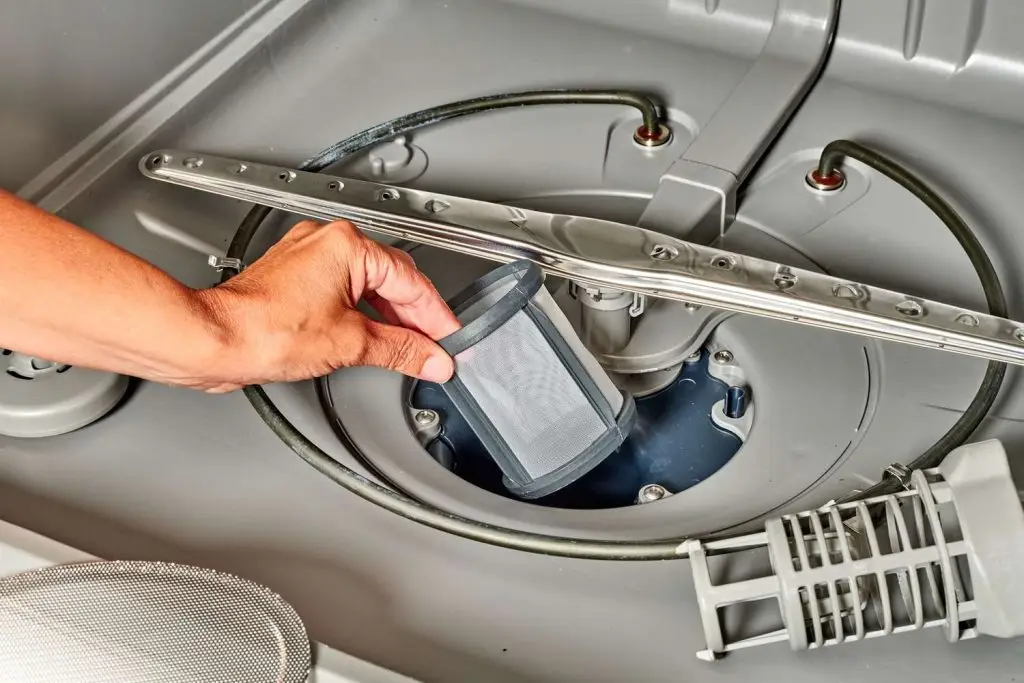Imagine a scenario: You load your dishwasher with dirty dishes, press the start button, and eagerly wait for the satisfying hum of your appliance as it begins its cleaning magic. But alas, it ends in disappointment – the dishwasher isn’t draining properly. Before you dial the repair service, let’s explore common reasons and easy fixes for this frustrating issue.
Common Reasons for Dishwasher Not Draining
Clogged Drain Hose
One frequent culprit for a dishwasher not draining is a clogged drain hose. Over time, food particles and debris can accumulate, impeding the flow of water out of the dishwasher.
Blocked Garbage Disposal
If your dishwasher shares a drain with the garbage disposal, a blockage in the disposal can lead to drainage problems. A quick check here is crucial.
Faulty Drain Pump
The drain pump is responsible for expelling water from the dishwasher. A malfunctioning pump can hinder the draining process, leaving your dishes in a pool of water.
Troubleshooting Steps
Inspecting the Drain Hose
Begin troubleshooting by examining the drain hose. Disconnect it and clear any debris. Ensure that it’s not kinked or bent, hindering the water flow.
Checking the Garbage Disposal
If your dishwasher is linked to the garbage disposal, inspect it for clogs. Run the disposal to clear any blockages and ensure smooth drainage.
Examining the Drain Pump
Carefully inspect the drain pump for any visible damage or blockages. If necessary, clean or replace the pump to restore proper functioning.
DIY Fixes
Clearing Clogs in the Drain Hose
A simple DIY fix involves clearing clogs in the drain hose using a pipe cleaner or a gentle stream of water. Ensure all debris is removed.
Unclogging the Garbage Disposal
Run the garbage disposal and use a plunger to dislodge any blockages. This simple step can often resolve drainage issues.
Repairing or Replacing the Drain Pump
For more complex issues, repair or replace the drain pump. Consult the appliance manual or seek professional assistance if needed.
Preventive Measures
Regular Maintenance
Perform routine maintenance by cleaning the drain and checking hoses for potential clogs. This prevents future drainage problems.
Proper Loading of Dishes
Avoid overloading the dishwasher, as overcrowded dishes can obstruct the spray arm and impede drainage.
Using Dishwasher-Friendly Detergents
Choose detergents suitable for your dishwasher, as using the wrong ones can lead to soap residue buildup and drainage issues.
Professional Help
When to Call a Technician
If DIY efforts prove unsuccessful, it’s time to call in the professionals. Timely intervention can prevent further damage.
Importance of Timely Repairs
Ignoring drainage issues can lead to more significant problems. Timely repairs not only save money but also extend the life of your dishwasher.
Common Myths Debunked
Myth: Dishwashers are Maintenance-Free
Contrary to popular belief, dishwashers require regular maintenance to function efficiently. Neglecting this can lead to various issues, including drainage problems.
Myth: All Dishwasher Detergents are the Same
Different dishwashers have different detergent requirements. Using the wrong detergent may result in residue buildup, impacting drainage.
Environmental Impact
Water Conservation Tips
Adopt water-saving practices, such as running the dishwasher only when full, to contribute to environmental conservation efforts.
Choosing Eco-Friendly Detergents
Opt for eco-friendly dishwasher detergents to minimize the environmental impact of your appliance use.
Conclusion
In troubleshooting and fixing a dishwasher not draining issue, a combination of DIY fixes, preventive measures, and professional assistance can get your appliance back on track. Regular maintenance and awareness of common myths will ensure a smooth and efficient dishwasher experience.
FAQs
- Q: How often should I clean the dishwasher drain hose?
- A: It’s recommended to clean the drain hose every three to six months to prevent clogs.
- Q: Can using too much detergent cause drainage issues?
- A: Yes, excess detergent can lead to soap residue buildup, affecting drainage.
- Q: Is it normal for water to remain at the bottom of the dishwasher after a cycle?
- A: A small amount of water at the bottom is normal, but if it’s excessive, it indicates a problem.
- Q: What should I do if the drain pump is damaged?
- A: Consult the appliance manual for guidance or seek professional help to repair or replace the drain pump.
- Q: Are there specific detergents recommended for my dishwasher model?
- A: Yes, refer to your dishwasher manual for recommended detergents to ensure optimal performance.








